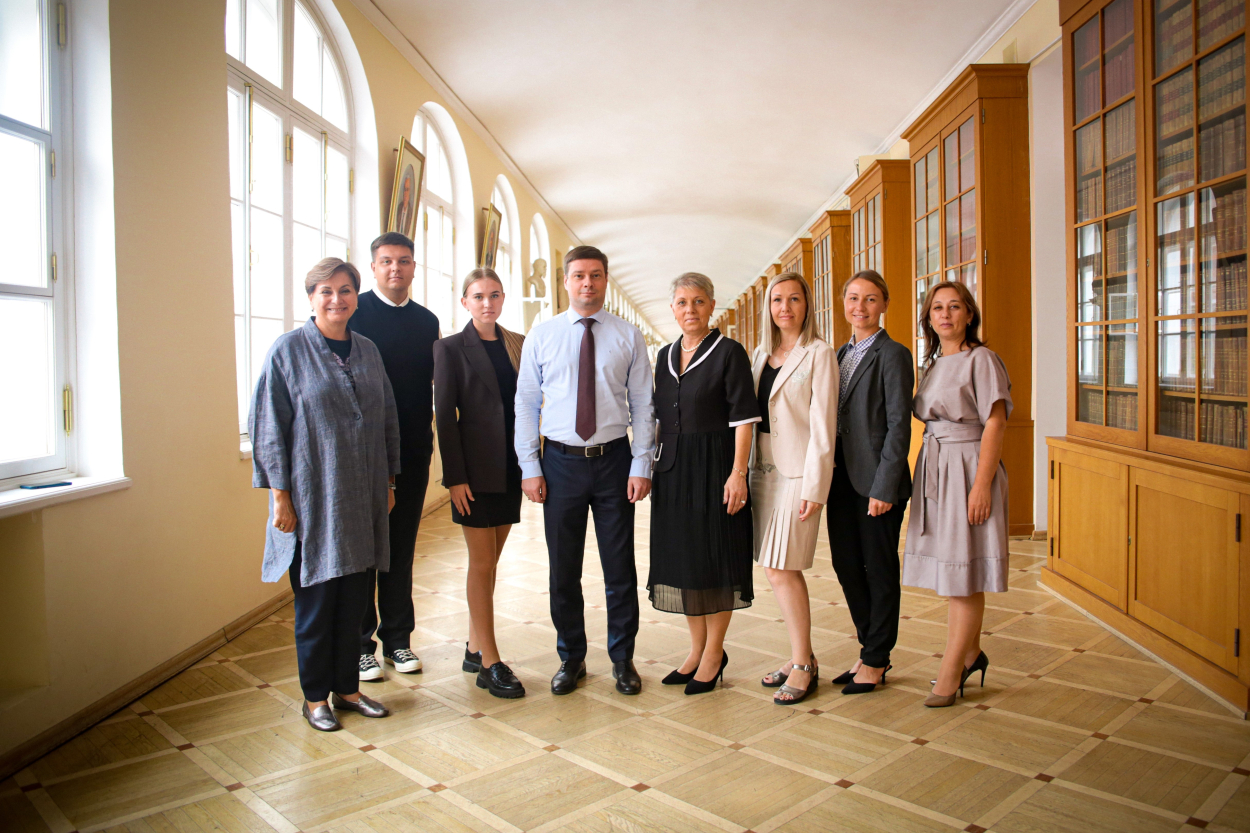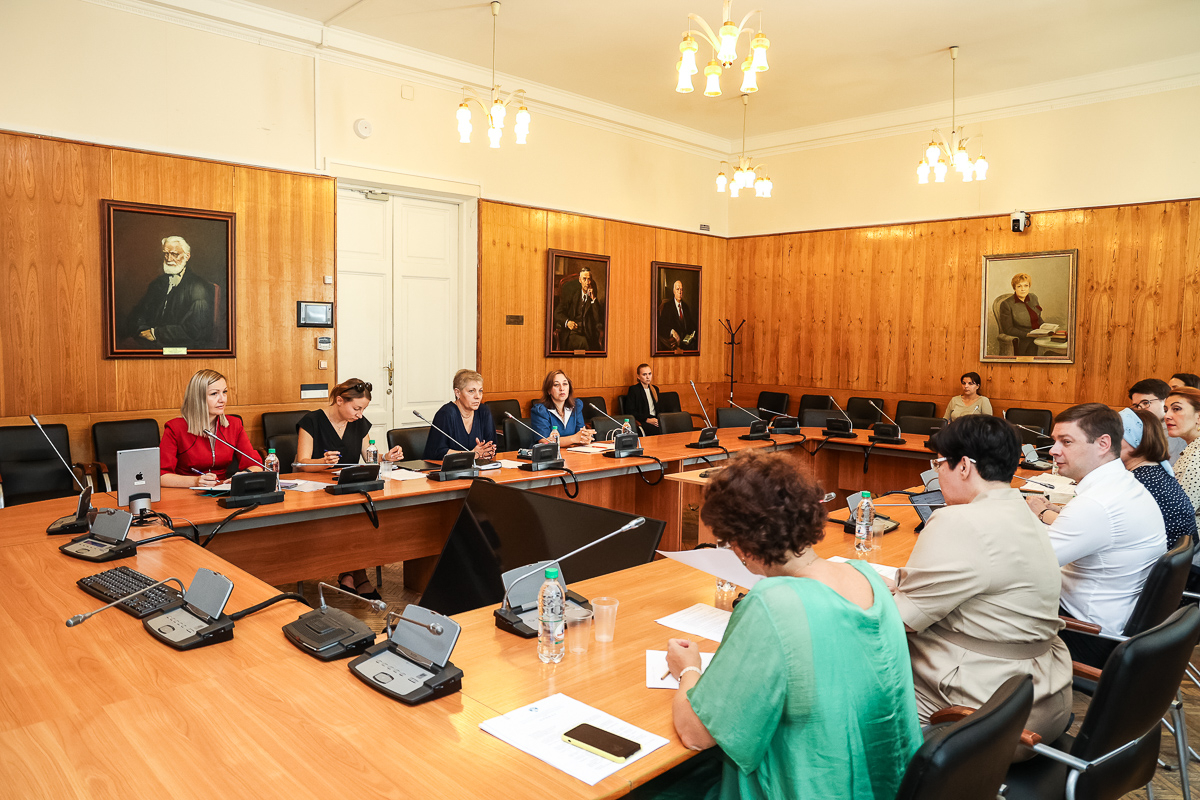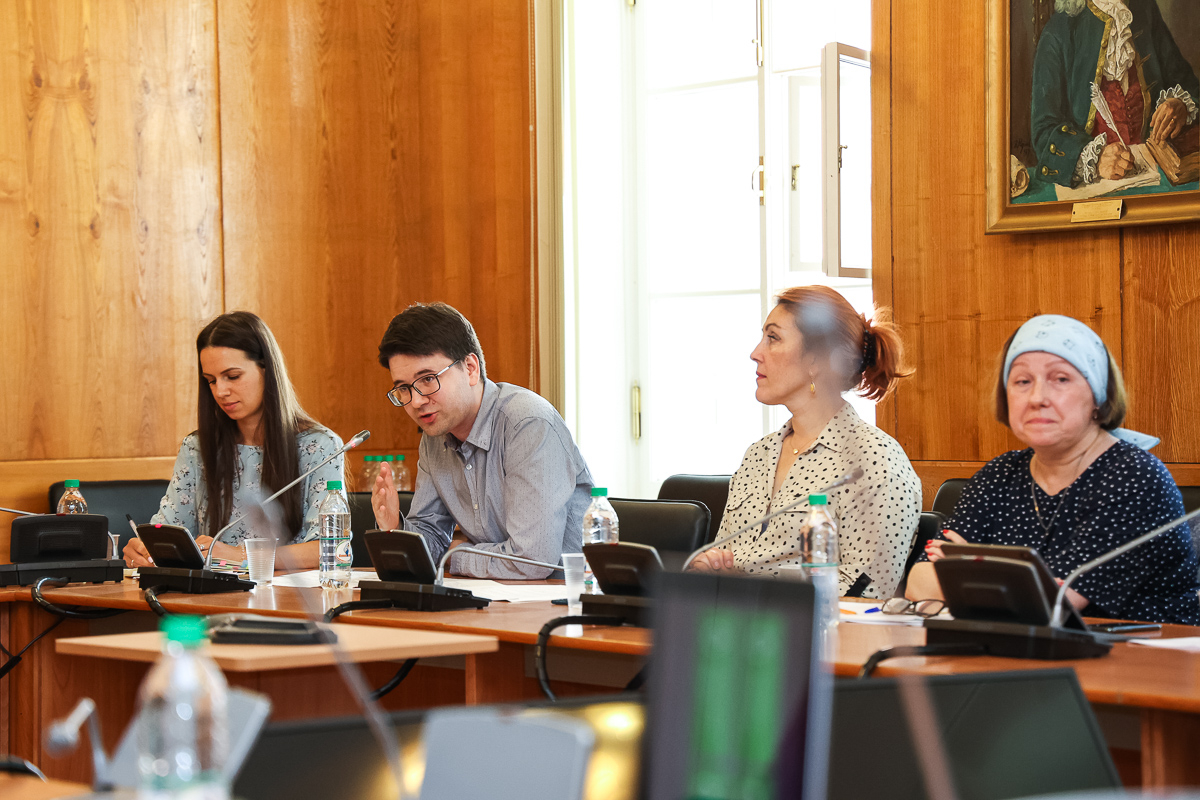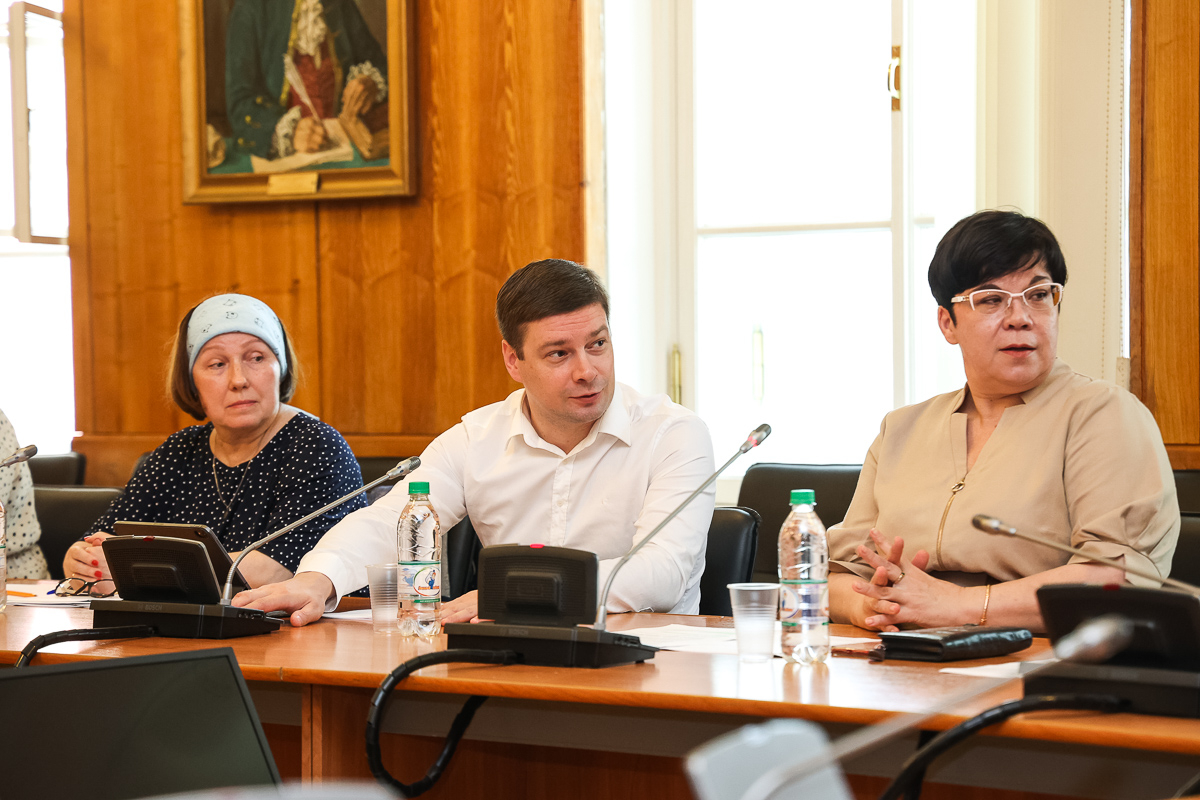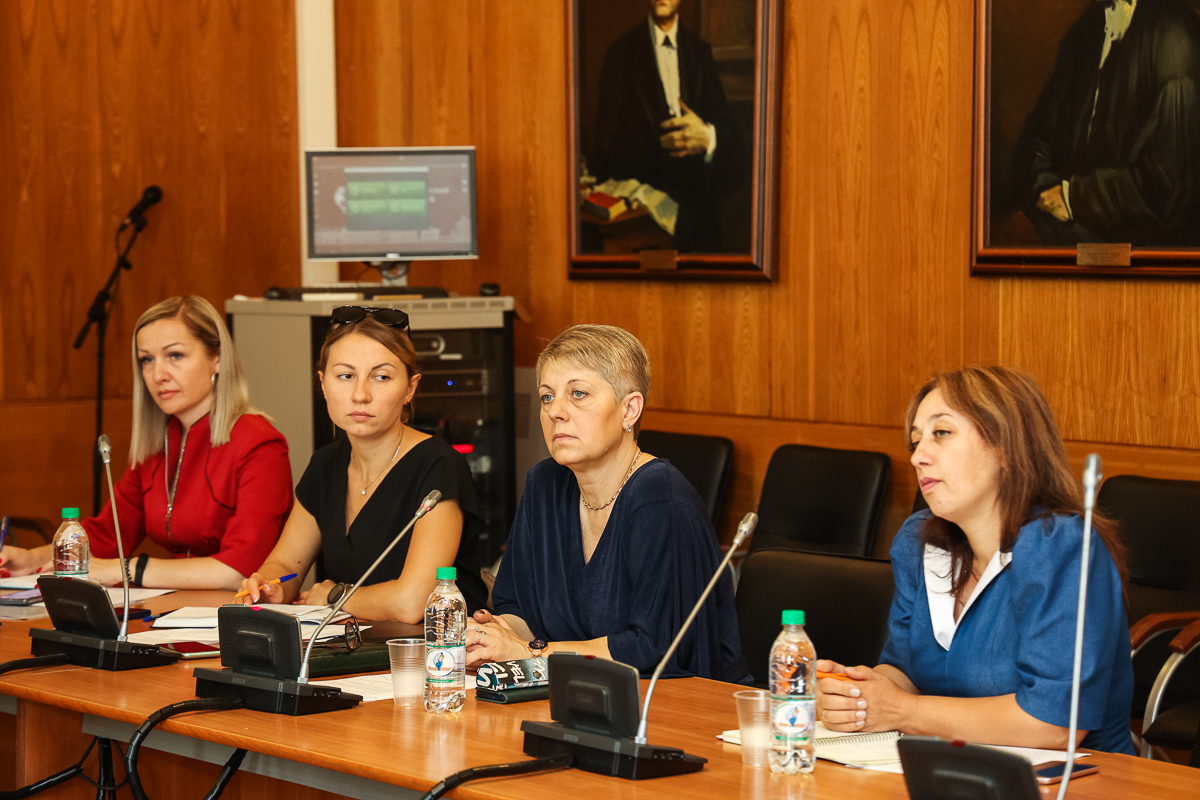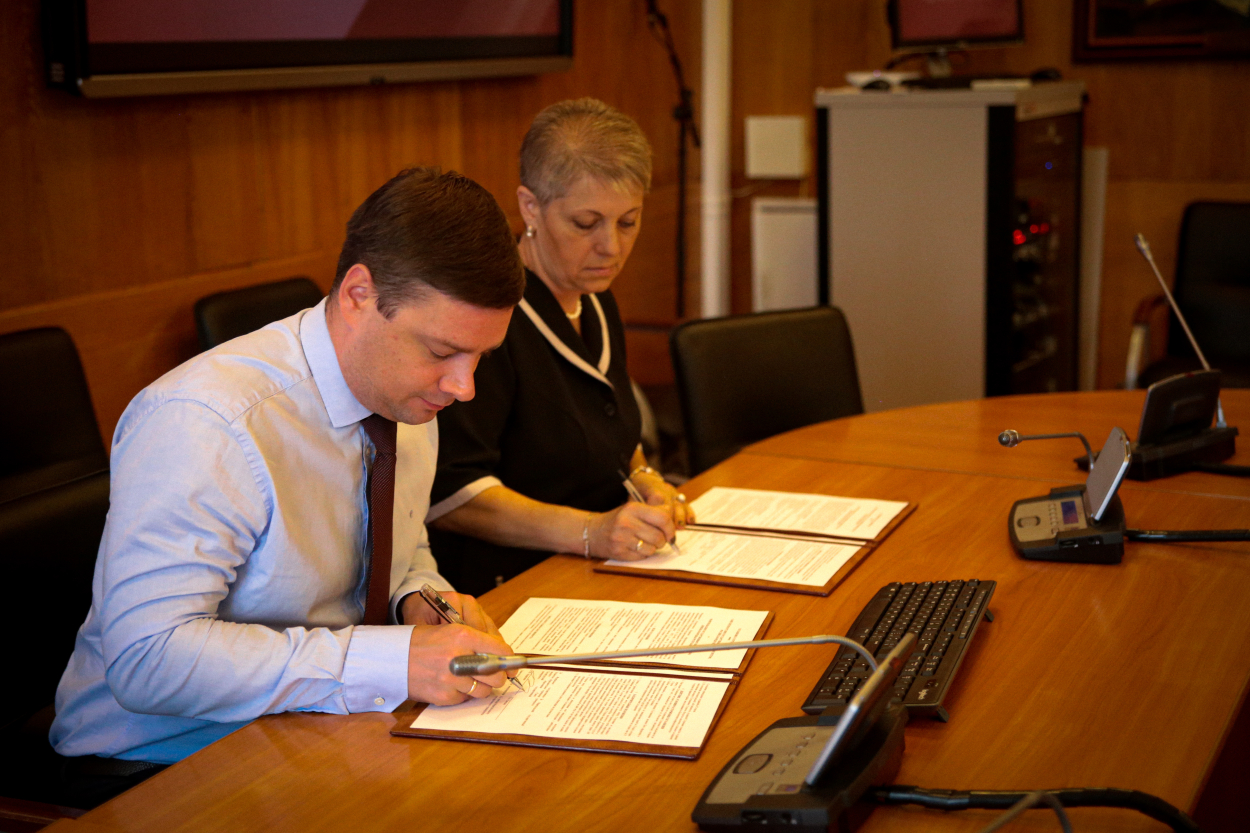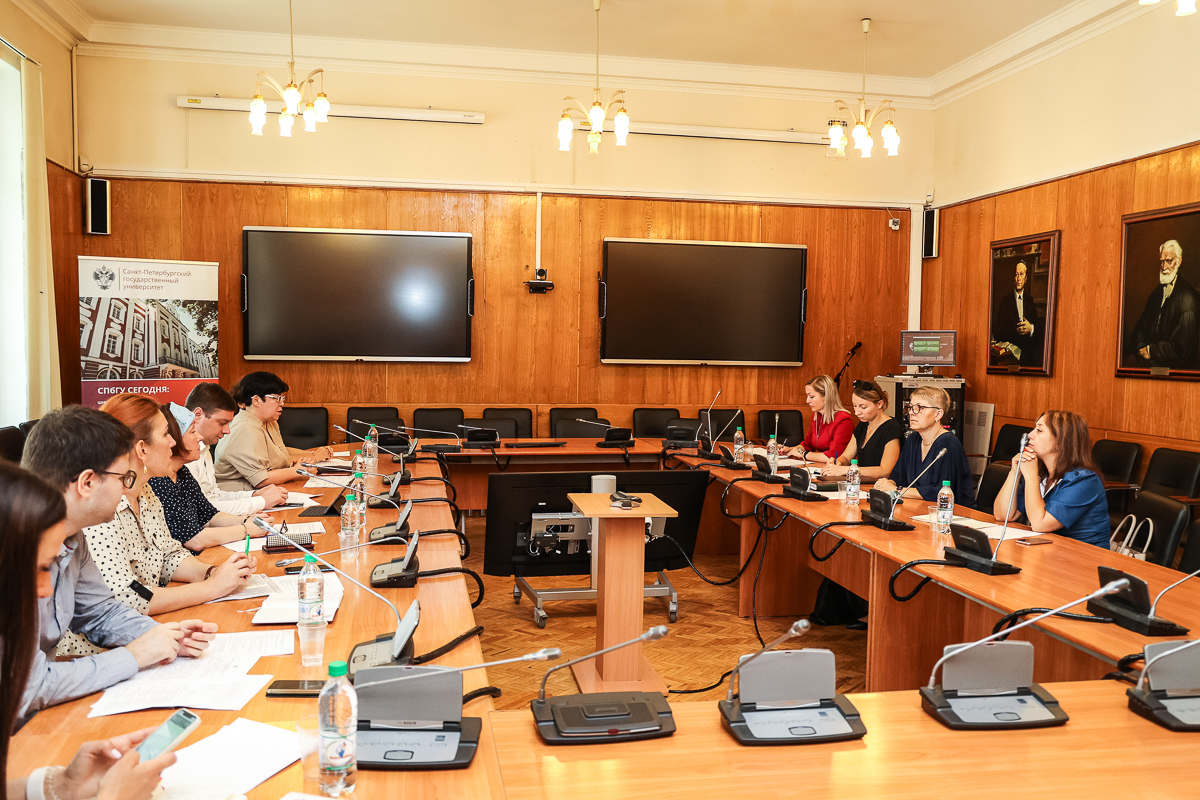St Petersburg University signs a network cooperation agreement with Mariupol State University
The participants in the meeting focused on interuniversity cooperation between St Petersburg University and Mariupol State University (the Donetsk People’s Republic) have discussed the current areas of joint work. They also discussed the possibilities of educational and methodological support for students and staff of the University of the Donetsk Region.
In the opening speech, Sergey Andryushin, Deputy Rector for International Affairs at St Petersburg University, said that St Petersburg University is ready to assist the partner university in restoring the educational process. ‘We are well aware of all the difficulties that have arisen in the current situation. The most important thing that we need to do now is to unite and jointly resolve issues related to our further cooperation,’ said Sergey Andryushin.
The Senior Vice-Rector for Academic Activities at St Petersburg University Marina Lavrikova spoke about the history of the University and also noted its special status.
We are very different from other higher education institutions in Russia. St Petersburg University has the right to determine its own educational standards; issue diplomas of its own type; and award its own academic degrees. In this regard, our experience is unique. Not every university has such opportunities. This, in my opinion, may be of interest to potential partners of our University.
Marina Lavrikova, Senior Vice-Rector for Academic Activities at St Petersburg University
The Acting Rector of Mariupol State University Larisa Sivolap thanked St Petersburg University for the support and expressed hope for fruitful cooperation between the universities. ‘Today, about 2,500 applicants for bachelor’s and master’s programmes have applied to us. They sincerely want to gain knowledge and become true professionals in their areas,’ said Larisa Sivolap. ‘The support provided by such a large-scale and prestigious university as St Petersburg University is a great honour for us and our students.’
Additionally, the main vectors of interaction between universities were considered during the meeting. Elvira Zeletdinova, Vice-Rector for Teaching Methods at St Petersburg University, spoke about the possibilities of network cooperation between universities. This cooperation implies that one university acts as a base organisation, while the second university acts as a participant providing educational, methodological, research, and pedagogical assistance. This model was proposed as a basis for further interuniversity work.
At the end of the negotiations, the parties signed a framework agreement and an agreement on a network form for the implementation of the programme in the area of study ‘History’ for a two-year period of study.


